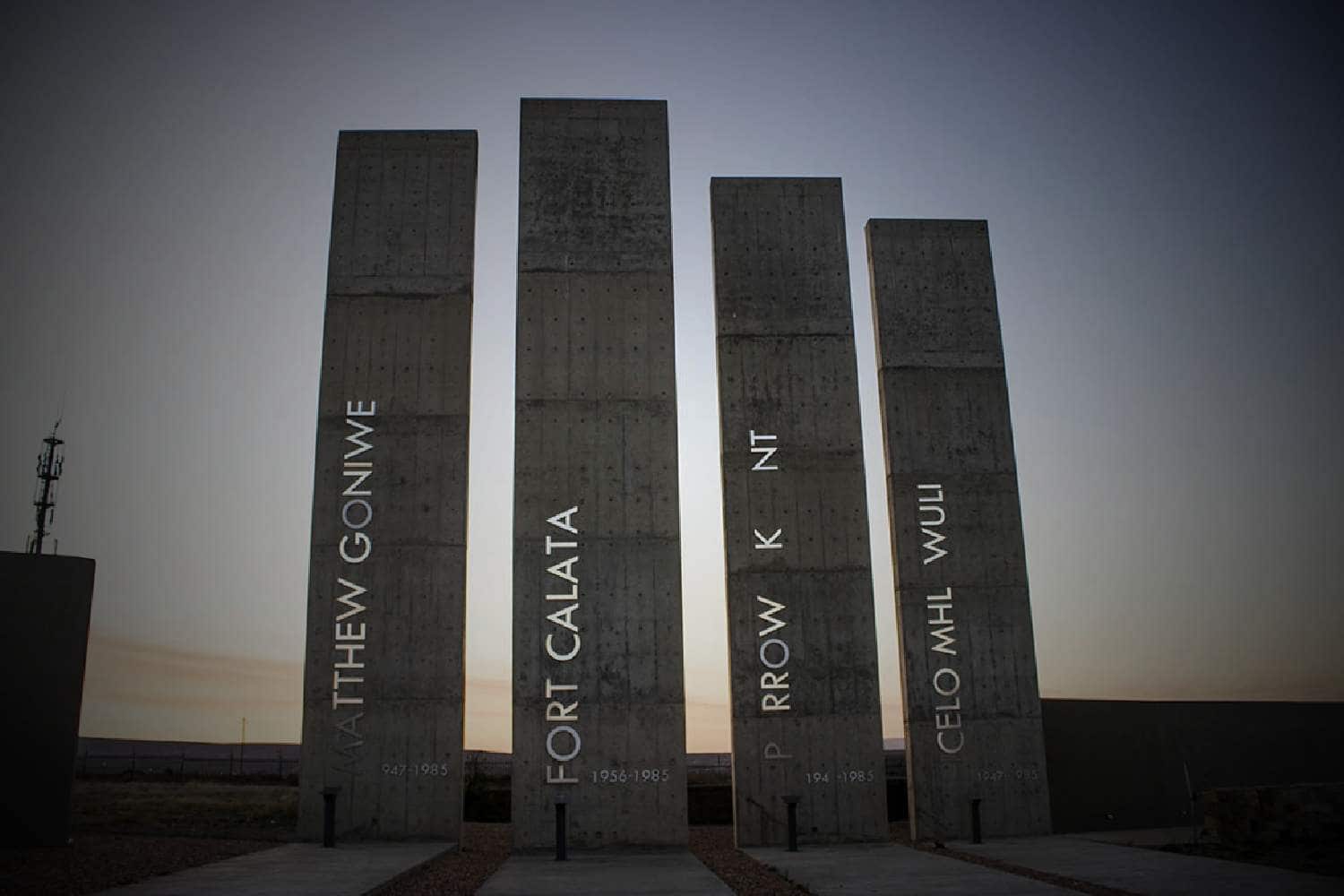The Cradock Four inquest resumes this morning in the Gqeberha High Court, where the court is hearing evidence related to the 1985 murders of anti-apartheid activists Matthew Goniwe, Fort Calata, Sparrow Mkhonto and Sicelo Mhlauli.
Thursday’s session focused on testimony from retired army Brigadier Christoffel Pier van der Westhuizen, who appeared virtually from Pretoria.
Van der Westhuizen, now in his eighties, confirmed he served as the commander of the Eastern Province Command and chairperson of the Joint Management Centre between 1982 and 1986 — a period marked by violent state suppression of political activism in the region.
He began by stressing that the events took place “about forty years ago” and that he now has “a very limited independent recollection” of the details.
His testimony revisited a 1993 inquest led by Judge Neville Zietsman, during which Van der Westhuizen was cross-examined for several days. He told the court that his current statement is consistent with the evidence he gave then.
He reminded the court that Judge Zietsman had found a prima facie (on first impression) link between a July 1985 military “signal” and the murders — the so-called instruction that three activists be “permanently removed from society.”
Van der Westhuizen acknowledged the signal was issued under his command but denied that it was ever meant as an order to kill. “I stand by my denial that I was in any way involved in the planning or execution of the murders of the Cradock Four,” he said.
“I had no prior knowledge of their deaths.”
The court heard that the signal was addressed to police and military commanders in the Eastern Cape and was interpreted by the Zietsman inquest as a coded instruction to eliminate the activists.
Van der Westhuizen’s legal team argued that the phrase had been misunderstood, saying it merely referred to removing individuals from positions of influence rather than physically removing them.
On Thursday, the State’s evidence leaders began questioning Van der Westhuizen about his knowledge of the four men. He admitted knowing two of them — Calata and Goniwe — “by name,” saying their activities were discussed in security briefings but claiming he “did not monitor them personally.”
When asked whether he understood their political influence in Cradock, he replied that such monitoring “was done by the security police.”
Much of the afternoon was spent on legal arguments over whether Van der Westhuizen could be re-questioned on evidence he had already given in 1993. His lawyer maintained that the reopened Cradock Four inquest should only focus on “new admissible and relevant evidence,” such as the amnesty applications submitted to the Truth and Reconciliation Commission in the 1990s.
Judge Thina Siwendu ruled that objections could be raised if questions strayed into old ground but that the witness must still “answer questions to the best of his ability.”
The inquest, reopened by the National Prosecuting Authority after new evidence emerged, aims to determine whether anyone still living can be held accountable for the killings.
The activists’ charred bodies were found outside Port Elizabeth (now Gqeberha) in June 1985, after being abducted and brutally murdered by apartheid security operatives.
Proceedings continue today with further cross-examination of Van der Westhuizen and potentially new witnesses from the Eastern Province Security Council.
Watch the live stream of the Cradock Four inquest below:
